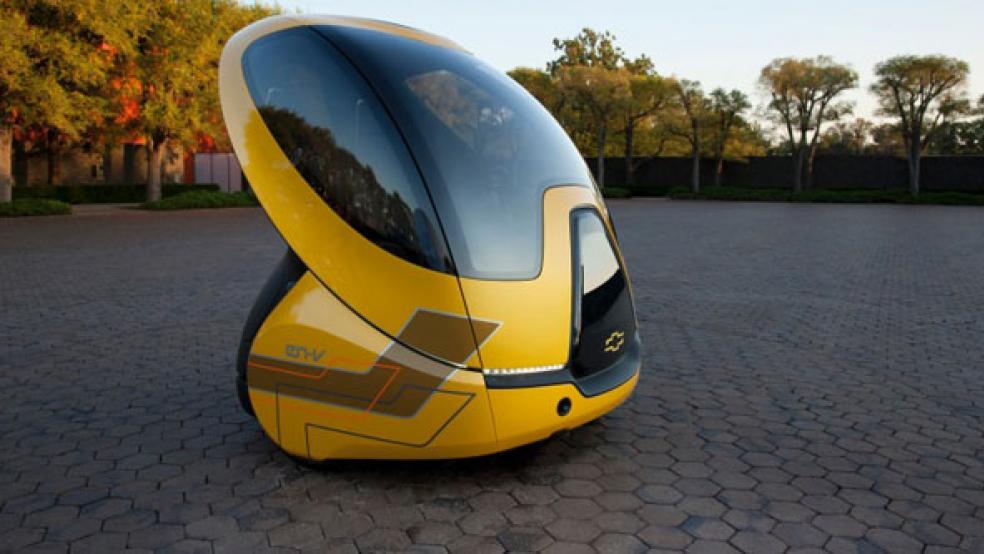Martin Kapp gestures towards the sleek red Italian sports car standing in his barn in the heart of Germany, secure in the knowledge there is not another exactly like it in the world.
By commissioning the 300 km per hour Alfa Romeo TZ 3 Corsa the 63 year old engineering company executive joined a band of custom car aficionados ranging from financiers to rock stars keen to acquire an exclusive exotic vehicle.
Related: Buying Cars for $60K Becomes the New Norm
Anecdotal evidence suggests they are a growing breed. Advances in computer design and safety testing have helped improve the feasibility of the cottage industry specialized in creating one-off cars for wealthy buyers, helping collectors like Kapp achieve what had been a distant dream.
"Knowing there would only ever be one built, that really appealed to me," said Kapp, whose home is on the outskirts of Coburg, Bavaria, where he is a managing director and partner at Kapp Group, a manufacturer of grinding machines for the auto industry.
Kapp is just one of a crowd of clients looking beyond the standard offerings from upmarket showroom marques such as Ferrari (part of Fiat) and Porsche (part of Volkswagen (VOWG_p.DE)) and have commissioned boutique design houses such as Castriota Design, Zagato, Pininfarina and Carrozeria Touring to create tailor-made models.
Although Kapp won't say how much he paid for his car, industry insiders say the cost of a one-off vehicle can range from several hundred thousand to several million euros, depending on the design sought by the client.
Related: Sales of Luxury Cars Are Booming
Kapp worked with Italian coachbuilder Zagato because he wanted a new version of his classic Alfa Romeo Giulia TZ, retaining the low-slung curves and flourishes of the 1960s original but adding modern performance and safety features.
Recent advances in computing power and software have simplified car design, reducing production costs, and new software simulation techniques have cut back the need for costly prototype crash testing procedures.
Official Acceptance
"Without a doubt, the real revolution that has occurred in recent years has been the official acceptance of mathematical modeling and virtual simulation," said Andrea Zagato, the third generation member of Milan-based coachbuilding business Zagato noted, saying regulators now accept software programs to do some of the work previously done through crash testing.
As a result, custom coachbuilding has experienced a renaissance in the past five years, experts and manufacturers say, radically modernizing an industry which traces its roots to an era when owners of horse-drawn coaches commissioned a body to go on top of an undercarriage.
Related: 20 American Cars That Rock Cuba
Boutique design houses have responded by making unique cars including the Ferrari P4/5, the Ferrari SP12 EC, a new version of the Lancia Stratos, and Kapp's Alfa Romeo TZ 3 Corsa.
To keep costs down, most of these modern vehicles use engines and crash structures already developed for established high-end sportscars. But this new breed of exotic vehicle incorporate such deep-seated modifications to their original shape and structure, that outsiders often cannot tell which vehicle was the base model.
Custom coachbuilding for the auto industry last flourished in the 1960s and 1970s, when mainstream manufacturers outsourced limited-edition coupe, convertible or light-weight versions of standard models to specialized builders, leading to the creation of rarities like the Aston Martin DB4 GT Zagato.
In the 1980s and 1990s, the coachbuilding market suffered as mainstream carmakers started to make niche models in-house, and after new safety regulations all but ruled out extensive modifications without requiring new crash testing.
Expanding Segment
Technological and regulatory changes have revived the sector. "In the last few years, we have produced more than 50 contemporary collectables, and in our opinion the segment is expanding," Zagato said, adding that low volume or one-off modern cars now make up 50 percent of Zagato's revenue.
Related: This Car Just Sold for $6.6 Million
Kapp said part of the joy of owning his TZ 3 Corsa had been understanding the manufacturing process, which included using the carbon underpinnings from a Belgian Gillet racecar and a modern engine which is otherwise used in the Alfa Romeo 8C.
Other examples of tailor-made cars include a modern version of the Lancia Stratos which Pininfarina made for Michael Stoschek, chairman of German auto supplier Brose Group, using components found in a Ferrari F430. A Ferrari Enzo was used to make the P4/5 delivered to U.S. investor James Glickenhaus.
Rock legend Eric Clapton wanted a modern version of the 1970s Ferrari Berlinetta Boxer, so Pininfarina and Ferrari made a one-off modern version for him, known as the Ferrari SP12 EC.
For Kapp, commissioning his TZ3 Corsa was a way to ensure it was authentic. The classic car sector has become problematic since it was flooded with money and a wave of fakes, Kapp said.
The soaring value of rare cars and the popularity of classic car rallies has led enthusiasts, car companies, and forgers to create an industry for making perfect replica spare parts. This, combined with a trend for restoring old cars to mint condition, has made it almost impossible for experts to distinguish new cars from perfectly restored originals.
"I went to a classic car event in Italy and there were three identical Alfa Giulia TZ's with the same chassis number," Kapp said, explaining that two of those cars must have been fakes. "With this new one I know exactly who made it and when."
With additional reporting by Agnieska Flak of Reuters.

